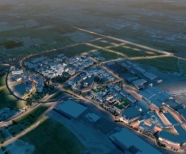The hidden costs of poor venue selection and how to avoid them
On paper, venue selection can look straightforward. Capacity, location, availability, budget. Tick the boxes and move on. In reality, most experienced bookers know that a...

Passengers flying from Dublin Airport will face additional security measures for a number of months after an EU audit identified two deficiencies in security. The European Commission has taken formal proceedings to get Dublin Airport to address the problems, and it will temporarily impose additional restrictions on flights out of the airport.
One of the two matters has already been addressed, but the Dublin Airport Authority said the second would take about two months to address due to its “technical” nature. The commission is imposing additional security procedures on aircraft leaving Dublin and arriving into other EU airports in the meantime, Minister for Transport Leo Varadkar confirmed. “These additional procedures are not expected to have any significant impact on passengers at Dublin Airport unless they are transferring through another EU airport en route to their final destination, in which case they will be required to undergo screening again,” he said. “This does not impact on other airports in the State.”
Mr Varadkar said he had taken steps to ensure any deficiencies were rectified swiftly, including by visiting officials at the airport on Monday. Neither the Minister nor the airport authority would give details of the nature of the problems for security reasons.
A spokeswoman for the European Commission said inspectors made 35-40 visits a year to member states’ airports to ensure they were abiding by the common security standard put in place in the wake of the September 11th, 2001, attacks on the United States.
Common EU rules allow passengers to move freely because the different airport authorities recognise each other as applying the same security standards, the spokeswoman said.
It was not unusual to find deficiencies during such an audit, but it was perhaps “a little bit unusual” that the commission had to issue formal proceedings in order to get the issues in Dublin addressed. She said this would mean “minor inconvenience” for passengers but also “reputational damage” for Ireland vis-a-vis the other airport authorities that would have to be informed.
A spokeswoman for the Dublin Airport Authority insisted that passengers initially flying out of Dublin would not be affected by the change and that it would not add to waiting times at security screening for these travellers and their luggage. “Passengers transferring through other European airports may be required to undergo further security screening,” the DAA said.
Ryanair chief executive Michael O’Leary said it was “unacceptable” that there had not been an “open, transparent and honest answer” about the security issues from either the Department of Transport or the Dublin Airport Authority. He said it had been confirmed that the authority knew of the security failure for more than a month, and it was “so serious that Dublin-originating aircraft will now be treated as the same security risk as flights originating from Afghanistan and Somalia”.
Aer Lingus said that while it was concerned at the “potential inconvenience” the issues may cause to its customers, its initial assessment was that such inconvenience could be minimised and it would “work closely with the relevant authorities to achieve this”.